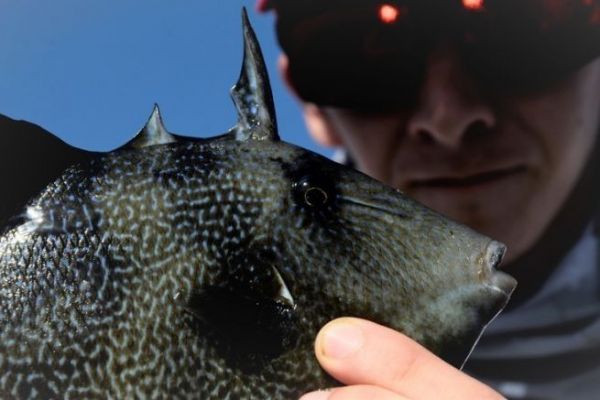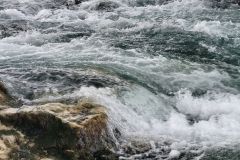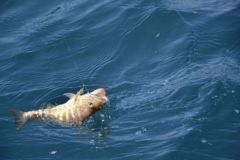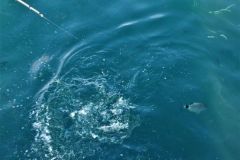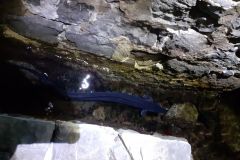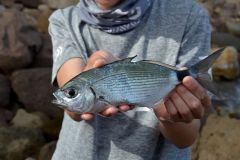The direct consequence of climate change
The tropicalization of the Mediterranean Sea defines the gradual transformation of its marine ecosystems and climatic conditions towards tropical-like characteristics, as a direct consequence of global climate change.
In concrete terms, this means :
- Marked rise in water temperature : in recent years, the Mediterranean has seen record-breaking heat, with surface temperatures often exceeding 29âeuros30 °C in summer, and more frequent and longer marine heatwaves. Even winters are becoming milder, especially cold spells.
- Accumulated frequency of extreme events : there are more heat waves, more irregular precipitation, and sometimes intense episodes reminiscent of tropical regions (localized torrential rains, storms).
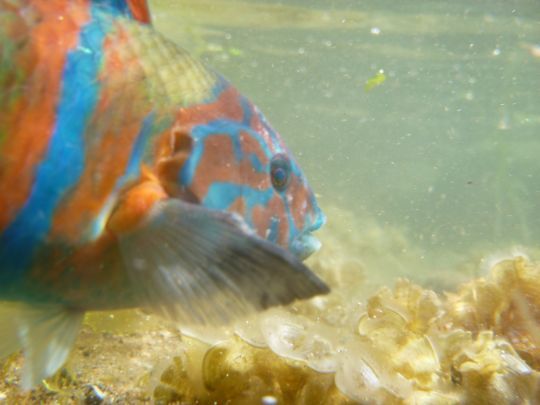
A profound change in ecosystems
Some typically Mediterranean species, notably corals, gorgonians, sponges, sea urchins and posidonia, are suffering massive die-offs or regressing, unable to tolerate such high temperatures.
At the same time, tropical species introduced via the Suez Canal (fish, invertebrates, algae) are now finding favorable conditions and invading the region, sometimes to the detriment of local species (species replacement, ecological imbalance).
The Suez Canal plays an important role in acting as a "corridor" for the entry of exotic species.
Rising temperatures in the Mediterranean are profoundly altering marine biodiversity through several major mechanisms:
Mass mortality of heat-sensitive species: anchored" species, such as corals (especially gorgonians and red coral), sponges, oysters, mussels and sea urchins, suffer exceptional mortality during marine heatwaves, as they are unable to migrate to colder waters. Yet these organisms play a key role as habitats, nurseries and barriers for many other living creatures.
Replacing native species : tropical species, often introduced via the Suez Canal or from the Atlantic, colonize the warmer Mediterranean. These include rabbitfish, lionfish, barracudas, blue crabs and exotic algae. These invasive species occupy space and consume or compete with local species, accelerating their decline or disappearance.
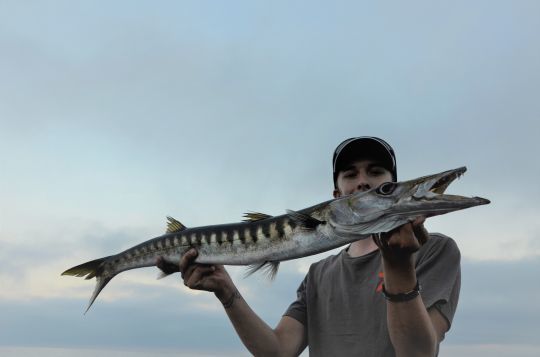
Reorganization of communities and habitats : native seaweed forests, rich in biodiversity, are regressing, replaced by tropical seaweed meadows poor in species and biomass. This is profoundly altering the structure and functioning of ecosystems, affecting all marine food chains...
Modification of ranges : temperate or cold-water species migrate northwards or disappear, while thermophilic species settle in, homogenizing Mediterranean flora and fauna. This redistribution leads to an impoverishment of local biodiversity.
Emergence of diseases and epizootics: heat stress weakens flora and fauna, making populations more vulnerable to emerging pathologies, which further accentuates mass mortality phenomena.
Proliferation of toxic algae and disruption of planktonâeuros¯: warmer, often less oxygenated waters lead to the growth of invasive algae and harmful micro-organisms, which can disrupt food webs and cause major ecosystem imbalances.
This phenomenon of "tropicalization" and accelerating invasions is favored not only by rising temperatures, but also by the weakening of local populations and the creation of opportunities for more tolerant and competitive exotic species.

 /
/ 